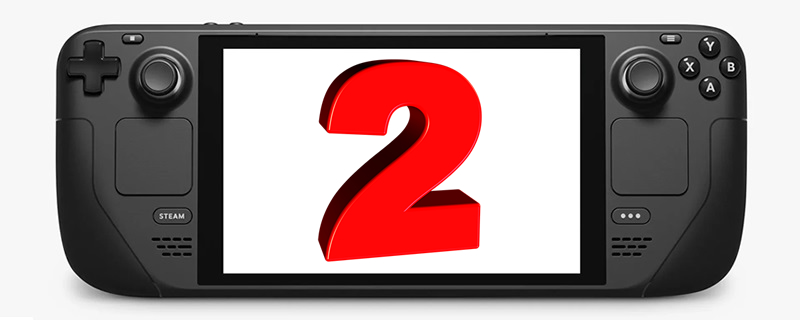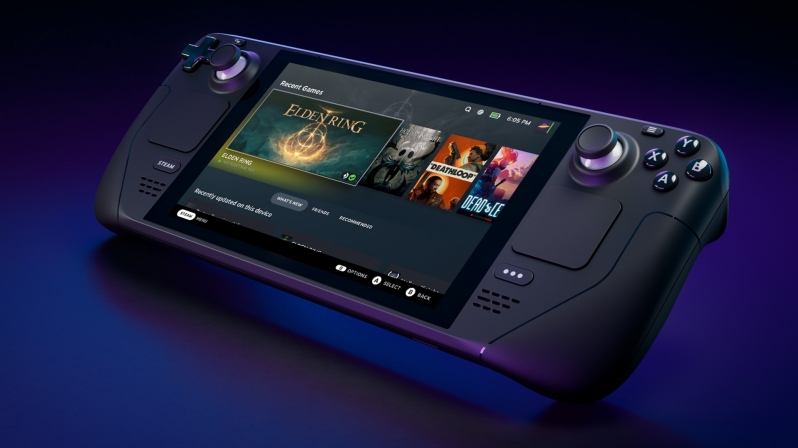A true Steam Deck successor is “a few years” away – Claims Valve Engineers
Expect Valve’s next-gen Steam Deck to have a “significant bump in horsepower”
In a recent interview with Rock Paper Shotgun, Valve’s Lawrence Yang and Pierre-Loup Griffais discussed the success of the company’s Steam Deck portable gaming PC during the anniversary of the device’s launch. Even today, Valve’s Steam Deck remains one of the top selling products in Steam in terms of revenue, often rivalling games that have sold millions of copies.
During the interview, Yang mentioned that 42% of Steam Deck users currently spend the majority of their Steam gaming time on Steam Deck, preferring it to their their other PC gaming devices. With strong sales, and a lot of playtime from owners of the device, it is easy to see why Valve in investing heavily into supporting their Steam Deck ecosystem, releasing frequent software updates for the device while verifying thousands of games for the handheld.Â
One sticking point for Steam Deck owners is that some new titles do not run well on the system, with many games failing to scale down to the system’s mobile hardware. That said, many new games run incredibly well on Valve’s handheld gaming systems, showcasing how developers can optimise their titles for the system with effort. Even so, many gamers want to see a more powerful second generation Steam Deck from Valve, a system that will offer gamers enough performance to run more demanding titles.Â
Regarding a next-generation Steam Deck 2 system, Valve’s Lawrence Yang stated that “a true next-gen Deck with a significant bump in horsepower wouldn’t be for a few years”. This leaves room for a revised Steam Deck design before the release of a next-generation model, likely a model with a larger battery and an OLED screen, but confirms that it will be a long time before we see a significant hardware upgrade.Â
Right now, Valve are focusing on supporting their current-generation Steam Deck and maturing its software stack before moving forward with a second generation system. Valve wants to deliver a large enough volume of Steam Deck systems that developers will be encouraged to optimise their games for their handheld hardware. One benefit of this is that it will help developers to optimise their games for lower-end PC hardware, a factor that will benefit all PC gamers.Â
Another factor that is worth considering is that Valve wants their next-generation Steam Deck to offer gamers a significant hardware upgrade. As such, it will take time for hardware to evolve sufficiently to deliver Valve a large performance increase without making their Steam Deck 2 an incredibly expensive product. Valve’s Steam Deck currently uses a low-cost 7nm AMD SOC with Zen 2 CPU cores and an RDNA 2 integrated graphics chip. Perhaps Valve will wait for Zen 5 and RDNA 4 before creating a Steam Deck 2, something that could push Steam Deck 2 to late 2024 or 2025.
You can join the discussion on Valve’s “true” steam Deck successor being “a few years” away on the OC3D Forums.




